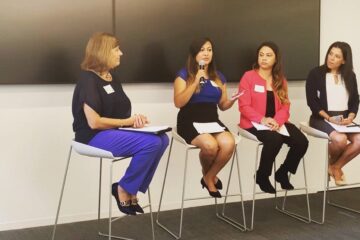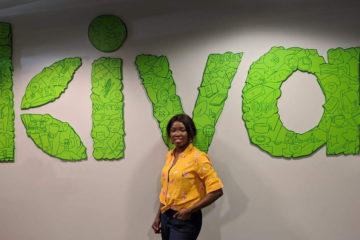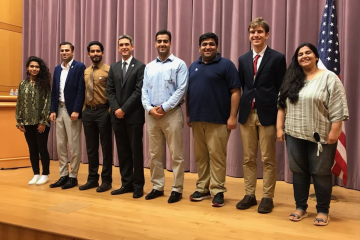With a network of around 750 Fellows from 95 countries, the Atlas Corps family is growing every day. It is time to look back and to showcase the achievements of our amazing Alumni. Today we want to talk with our Alumna Selma Bardakci (Turkey, Class 20, Host: John D. Evans Foundation | Class 27, Host: Center for Asia Leadership). After serving as an Atlas Corps Fellow in Washington, DC, and being part of the pilot Atlas Corps Malaysia Fellowship, Selma returns home to focus on Asia Pacific issues to help facilitate dialogue and improve business and diplomatic relations between countries.
Congratulations to Selma in being named the Coordinator for the Asia Pacific Business Councils for the Foreign Economic Relations Board of Turkey (DEIK), an entity responsible for leading foreign economic relations of Turkish private sector in foreign trade, international investment, international construction as well as increasing the export volume of Turkish business. We wish her the best with this exciting opportunity!
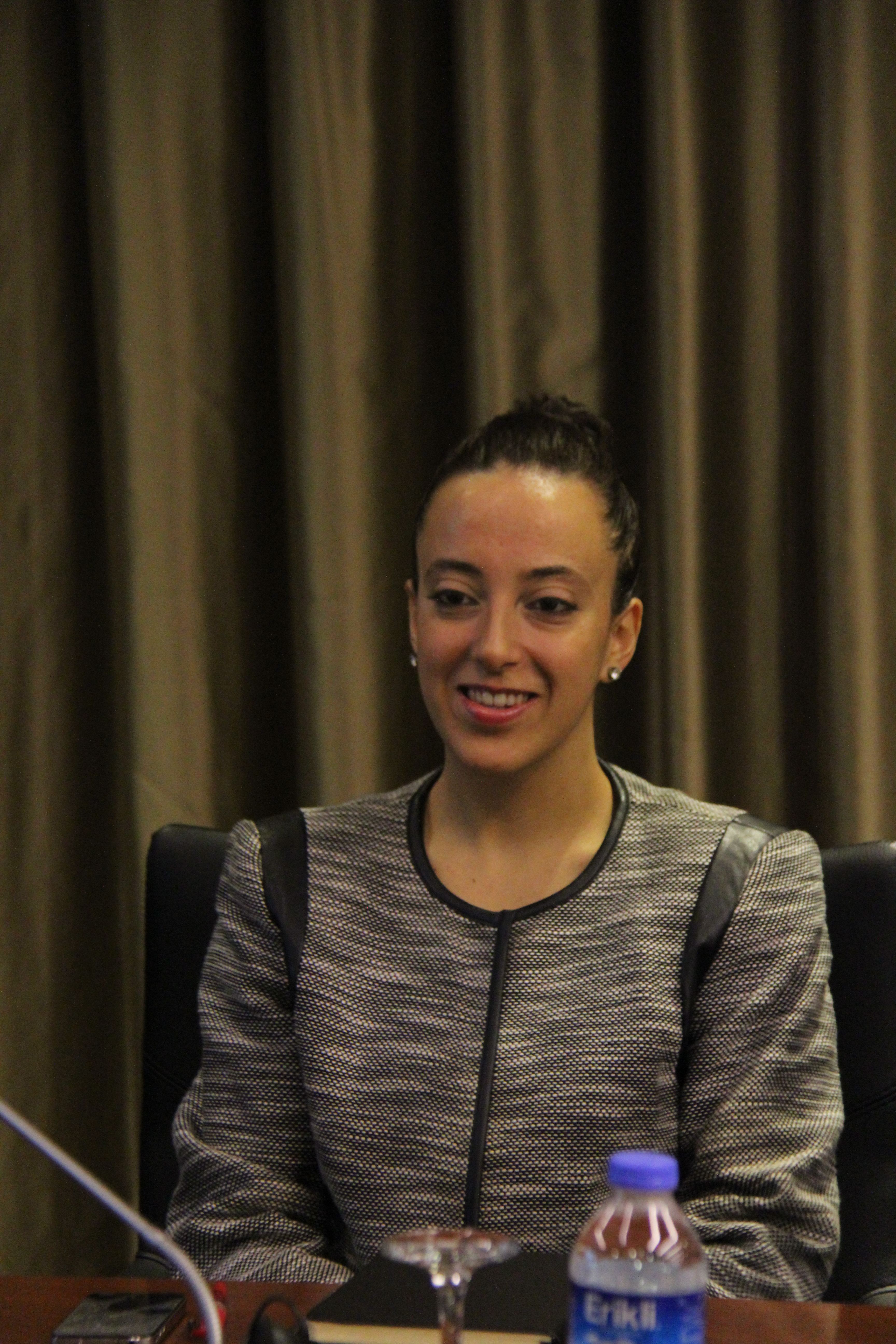 |
Name: Selma Bardakci
Home Country: Turkey Current Organization: Foreign Economic Relations Board (DEIK) Role at current organization: Turkey – Asia Pacific Business Councils / Coordinator Social Issue have you worked with: Decent work and economic growth, Sustainable cities and communities, Peace, justice and strong institutions |
How has Atlas Corps contributed to your professional accomplishments?
After serving eighteen months in Washington D.C. as an Atlas Corps Fellow, I became the first Fellow in the Malaysia-based program, jointly run by the Center for Asia Leadership Initiatives (CALI) and Atlas Corps. Both of my fellowship experiences have enhanced my personal and professional skills as a bridge builder, helping me contribute towards a more inclusive society and world. I attribute my current role as coordinator for the Foreign Economic Relations Board’s Asia – Pacific Business Councils to the CALI-Atlas Corps Fellowship. The experience allowed me to have a more nuanced understanding of local dynamics, regional patterns, and Asia—Pacific’s growing role in the world stage.
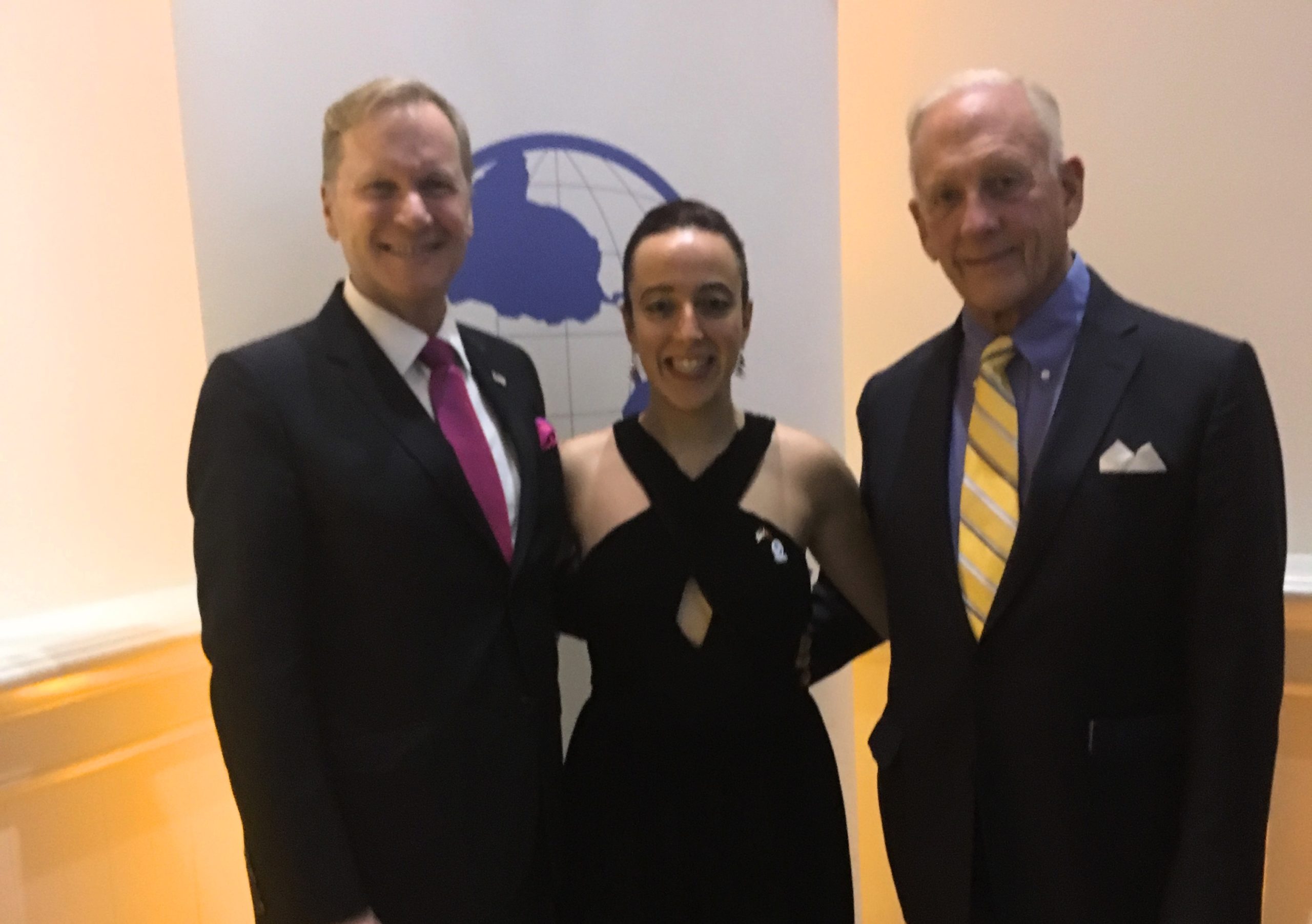
Through the Fellowship I traveled to six countries in the region, where I sought out on-the-ground, local perspectives on important issues. For example, I observed that many multinational companies in Asia are seeking diverse backgrounds in their workplaces in order to improve customer experiences with their products and services. Asia’s value of diversity inspired me to focus more on diversity in my current work. As part of the CALI-Atlas Corps Fellowship I was honored to participate in the Harvard Kennedy School’s program on Adaptive Leadership. This program shaped me understanding towards leadership. It contextualises my current outlook and goals today, and I am constantly striving to be an adaptive leader. I learned that leadership is a never-ending process, and as an adaptive leader it is important to focus on building alliances for solidifying future careers, and that finding partners and people to support is crucial for making your work impactful and successful.

How has Atlas Corps contributed to your personal accomplishments?
Through Atlas Corps I was able to build bridges and help people understand and embrace difference both at home and overseas. I confronted my own prejudices by working with people from all different nations, ethnicities, religions, abilities, gender identities, sexual orientations, and classes. In gaining exposure, I challenged my own assumptions and transformed. For example, as an Atlas Corps Fellow in D.C. with the John Evans Foundation, I facilitated working group meetings on Criminal Justice Reform, an issue that brings together both Washington insiders and economically marginalized communities across the U.S. These experiences inspired me to transform my own society by supporting platforms for disparate groups to engage with one another. Indeed, I believe that in seeking to shape our world, we should first seek opportunities that shape ourselves.
Serving in the U.S. and Malaysia, I have discovered my passion for crossing boundaries and builds bridges among people, cultures, religions, and ways of thought from all around the world.
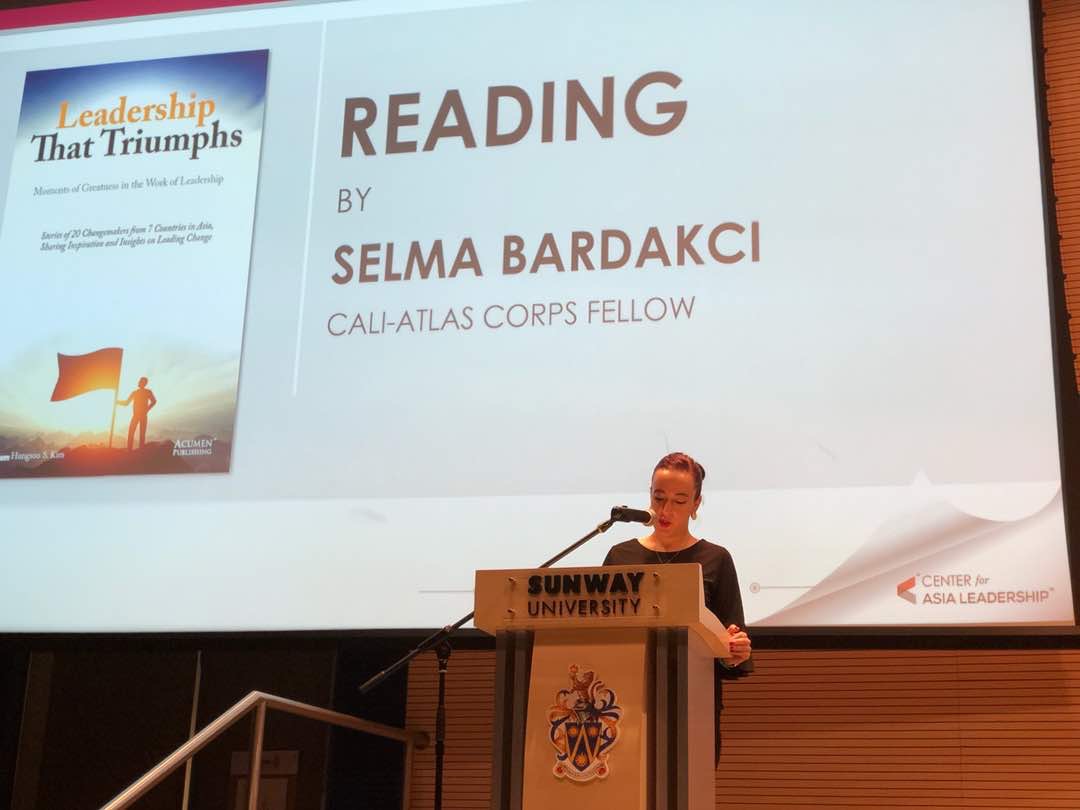
What are major highlights of your professional journey since you have finished the Fellowships?
Involvement with Turkish Heritage Organization (THO) in DC: I was recently elected to the Board of THO, an organization that promotes discussion and dialogue around Turkey’s role in the international community and issues of importance in the U.S.-Turkey bilateral relationship. As a true believer of citizen diplomacy, I am always looking for ways to strengthen the Turkey-U.S. relationship. Given present day challenges and short-sighted debates, I am especially glad to be part of a platform that fosters constructive opportunities, conversations, and programs to build long – term ties at all levels. I was also able to orient my experience as an Atlas Corps Fellow in D.C. to co – chair THO’s Non – Resident Fellowship program this year. We gathered 15 changemakers and leaders from Turkey and the U.S. and planned weeklong programs in the two countries. Having extensive networks in both D.C. and Turkey, I coordinated meetings between the Fellows and decision makers, diplomats, academics, and NGOs to understand relevant issues.
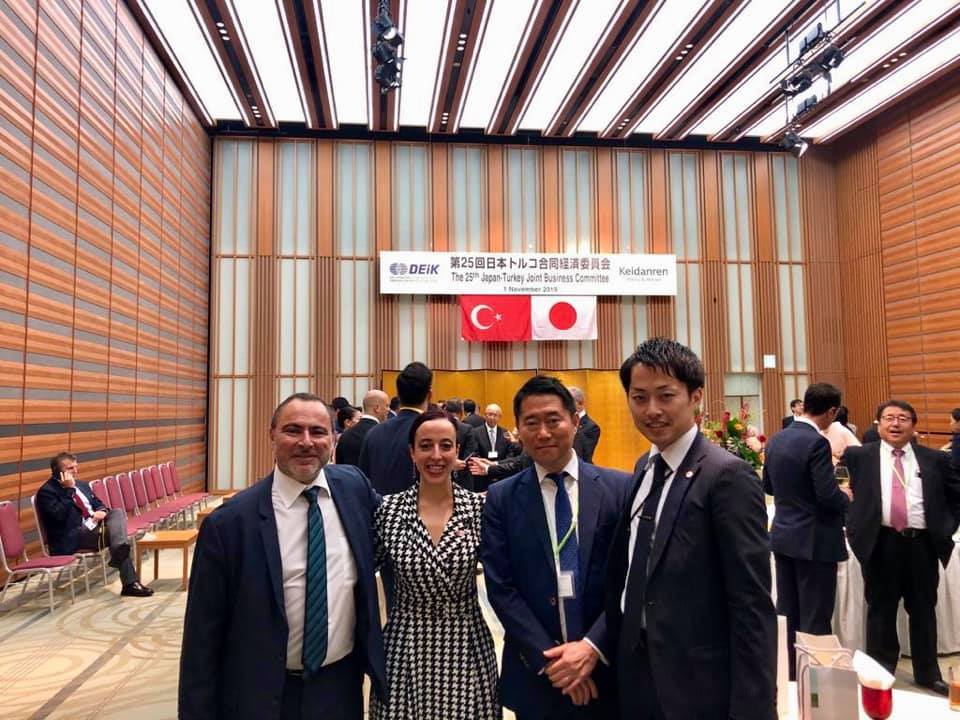
Sharing my Atlas Corps experience to promote constructive dialogue in Turkey: Most recently I sat on a panel for the International Relations and Foreign Policy department of Medipol University, during a session called “Seeking Leadership in a Rapidly Changing World Order.” I was able to reflect on the importance of my Atlas Corps experiences, which provided me with the international platform and perspective to continue building ties between Turkey and the rest of the world. I believe that knowledge-sharing and discussion is critically important to Turkish society, especially now. Serving as an Atlas Corps Fellow gives me the confidence and credibility with which to facilitate such dialogue and encourage other Turkish students to see their own leadership potential.
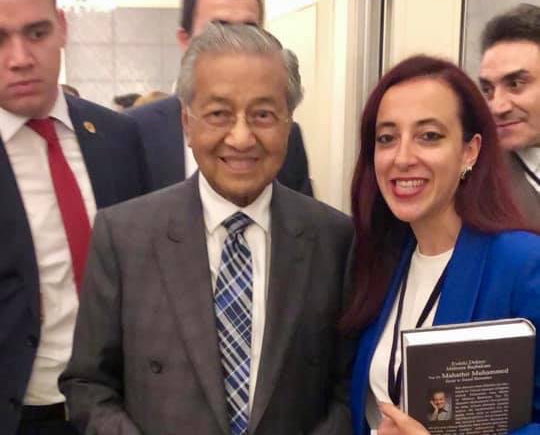
Have you collaborated with any other Atlas Corps Fellow after finishing the Fellowship?
The best part of the fellowship was to meet with committed and inspiring social change leaders from all over the world. I have kept in touch with my fellow Fellows; we always discuss different topics and how we should collaborate on the issues in which we are interested. Since I have started to work more on the Asia – Pacific region and related issues, I have been talking with my fellow Fellows from the region and seeking out common projects.
When I was serving in Washington D.C., we conducted a panel on “Countering Violent Extremism”, which serves a useful example of building alliances. I was lucky to share the stage with Fellows from Pakistan and Australia and speakers from both the State Department and think thanks that work on terrorism and extremism. We discussed the power of cross-border collaboration and the importance of inspiring leadership in the decision – making process. It was a great experience for me to collaborate with my fellow Fellows. I am looking forward to increase these examples under my new professional roles and responsibilities at the Foreign Economic Relations Board.
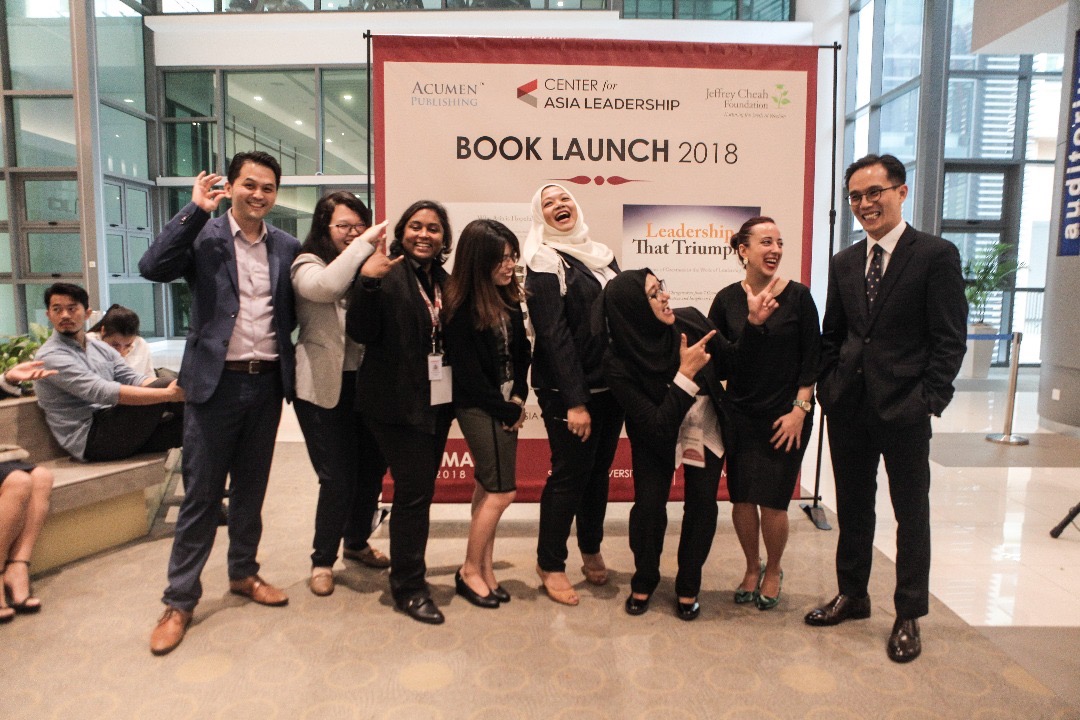
As an Atlas Corps Alumni, how are you a better social change leader?
It is an honor for me to be part of this powerful and diverse global community of more than 750 professionals from 95 countries. I’ve listened to their stories, formed lifelong friendships, and learned a lot from these amazing social changemakers. Having served in both the U.S. and Malaysia, and having lived among very different cultures, I now have the courage, confidence and accountability to facilitate social change in Turkey. I am a better social change leader now because this global network motivates and challenges me to collaborate across borders, think positively, step outside of my comfort zone, and leverage my privilege to help others. This is how I keep going every day; I am grateful to be among these inspiring individuals as an Atlas Corps Fellow.
What is your favorite Atlas Corps memory?
My favorite Atlas Corps memory in the U.S. was the White House Eid reception, to which I was invited alongside other Muslim Atlas Corps Fellows. It was an unforgettable experience to receive a warm “Eid Mubarak” greeting from President Obama, since I had admired his leadership. Throughout his terms in office, Obama focused on soft power and diplomacy in the Muslim world, keeping the tone of his rhetoric peaceful and empathic. In addition, thanks to my great supervisor, Vice President of the John D. Evans Foundation Steve Wozencraft, I was able to meet, talk and have a selfie with former President Clinton. This was another amazing moment of my Fellowship in the U.S.
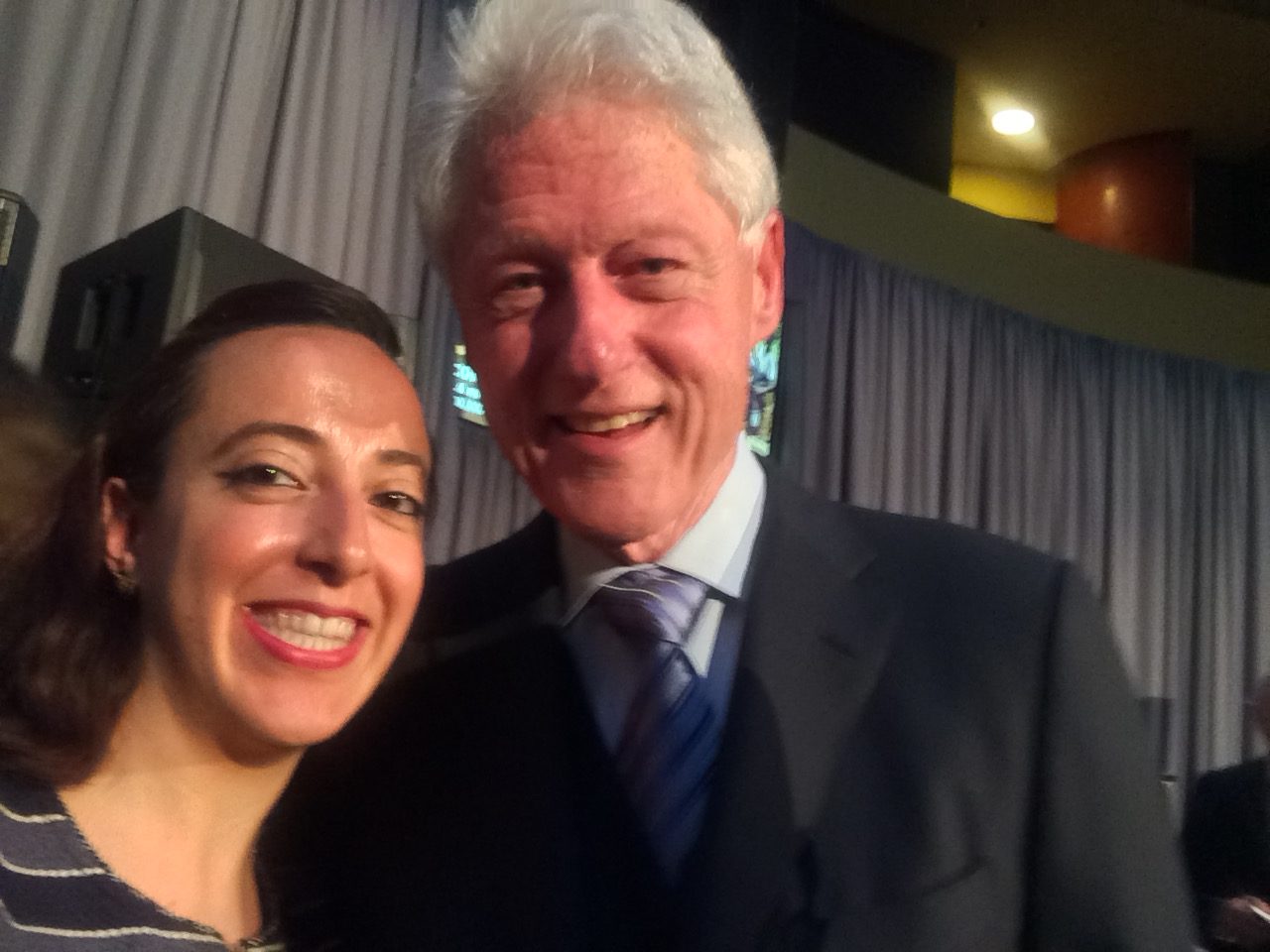
My favorite Atlas Corps memory in Malaysia was meeting with Nobel Laurate Professor Muhammad Yunus at Sunway University. Dr. Yunus is the father of social business and microcredit; he is one of the world’s greatest entrepreneurs and an inspirational leader. He believes in transformational work and changing the world through empowering individuals. He founded the largest bank (Grameen) in Bangladesh, which is owned by the poor. It was a big honor to meet and listen to him.
My favorite hangout spot was the Atlas Corps office, which was like a United Nations. I was sharing my office with amazing social change leaders from all over the world, including Pakistan, Venezuela, Australia, Brazil, Zimbabwe, and India. I learnt a lot from their journeys in our everyday interactions and shared experiences. My favorite food from the U.S. was Five Guys—I love junk foods like hamburgers and French fries. In Malaysia it was satay and banana leaf.
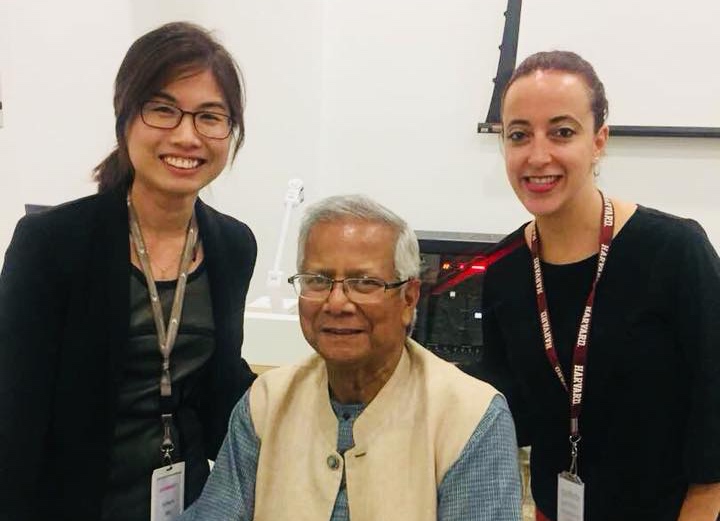
What advice do you have for applicants and incoming Fellows?
My humble advice for the amazing incoming Fellows would be to stay adaptable. From the beginning to the end of your fellowship, try to be open- minded and ready to learn from different practices and perspectives. Through this open-mindedness you will be able to grow personally and professionally. Always keep in mind that all the networks you build during your fellowship will be your global alliances and supporters for your social issues. Building relationships with different actors, and building trust, will be the most important part of your fellowship.
Atlas Corps and its leadership have been putting so much efforts for making the Fellowship program better for all our Fellows, your host organization is excited to have you and learn from your valuable experience, your fellow Fellows from more than 95 countries are your global power and network. So now, all these great ingredients are on your table! Just show us what an amazing chef you are, and cook your best food during your life- changing fellowship experience.
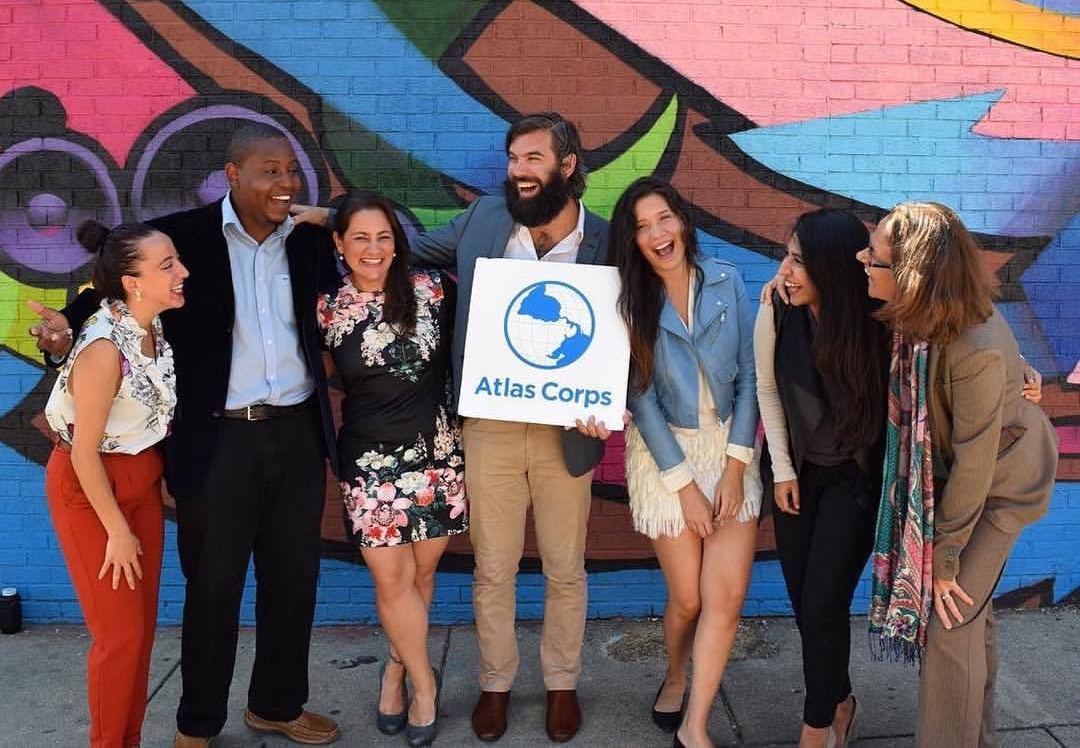
More about Atlas Corps
Atlas Corps partners with mission-driven organizations (nonprofit, private, and government) to facilitate a professional exchange program for the world’s best emerging social change leaders to live and serve in the United States for a 12-month Fellowship. The Atlas Corps network currently includes more than 750 professionals from 95 countries who have served at 300 organizations.
Interested in becoming our Fellow? Apply now at apply.atlascorps.org.

